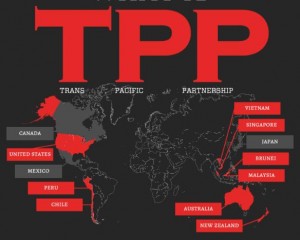At his joint press conference with Malaysian Prime Minister Najib Razak, Obama addressed concerns that intellectual property provisions in the Trans Pacific Partnership (TPP) will lead to “higher costs of medical supplies.” His response was that people who raise concerns about TPP intellectual property provisions and access to medicines have a “lack of knowledge” about what is happening in (secret) negotiations, and are therefore prone to “rumors” and “conspiracy theories.”
Obama’s comments could almost be considered an argument in favor of greater transparency, though that was obviously not his intent.
It is also worth noting that the provisions found in the leaked texts are the same types of provisions that have been shown to raise drug prices in other countries that have implemented trade agreements with the United States. Last year’s joint report by the World Trade Organization, World Health Organization, and World Intellectual Property Organization describes the impact of TRIPS Plus intellectual property provisions dictated by trade agreements in Costa Rica, the Dominican Republic, Colombia, and Jordan. Extensive analyses of the most recently leaked TPP intellectual property text by civil society and academics are available here.
The full transcript of the joint Razak-Obama press conference, posted by Inside U.S. Trade, is available here. Obama’s quote about the TPP (pages 9-10) follows:
If you take an issue like drugs, for example, the United States does extraordinary work in research and development, and providing medical breakthroughs that save a lot of lives around the world. Those companies that make those investments in that research oftentimes want a return, and so there are all kinds of issues around intellectual property and patents, and so forth.
At the same time, I think we would all agree that if there’s a medicine that can save a lot of lives, then we’ve got to find a way to make sure that it’s available to folks who simply can’t afford it as part of our common humanity. And both those values are reflected in the conversations and negotiations that are taking place around TPP. So the assumption somehow that right off the bat that’s not something we’re paying attention to, that reflects lack of knowledge of what is going on in the negotiations.
But my point is you shouldn’t be surprised if there are going to be objections, protests, rumors, conspiracy theories, political aggravation around a trade deal. You’ve been around long enough, Chuck — that’s true in Malaysia; it’s true in Tokyo; it’s true in Seoul; it’s true in the United States of America — and it’s true in the Democratic Party.





